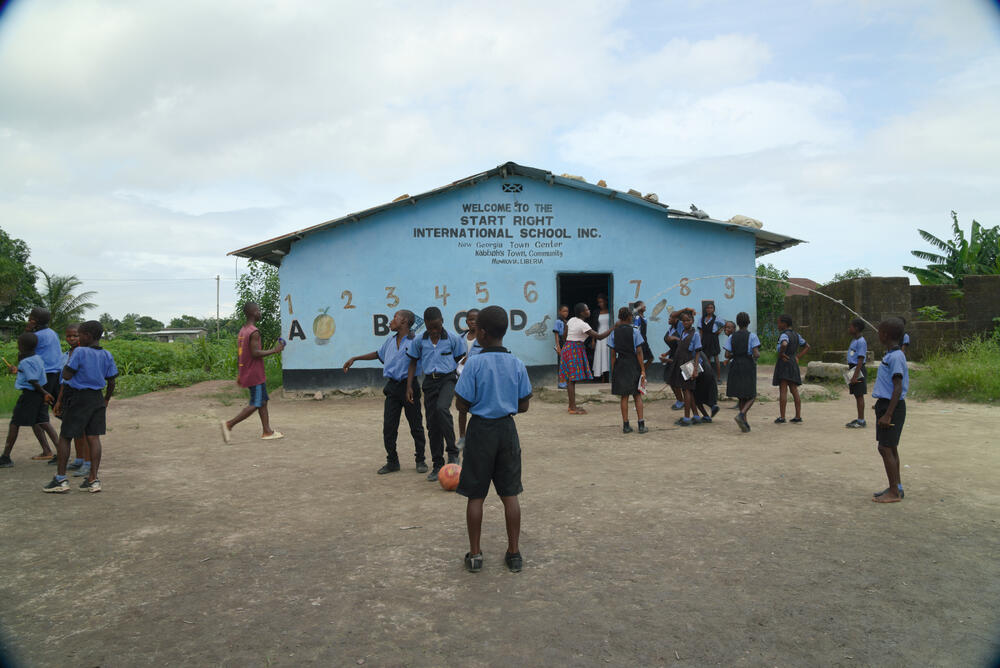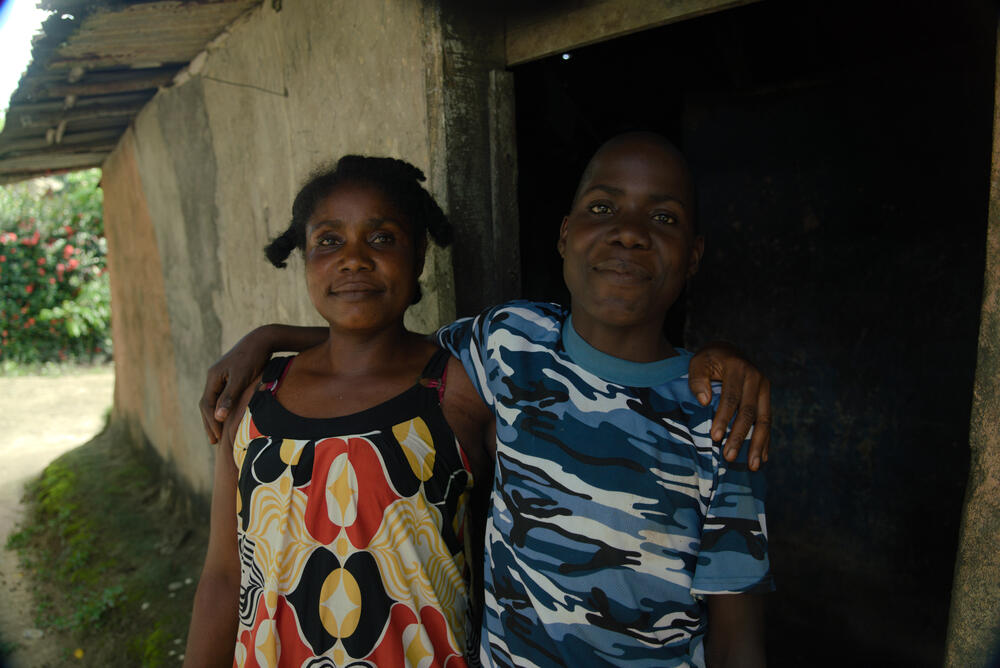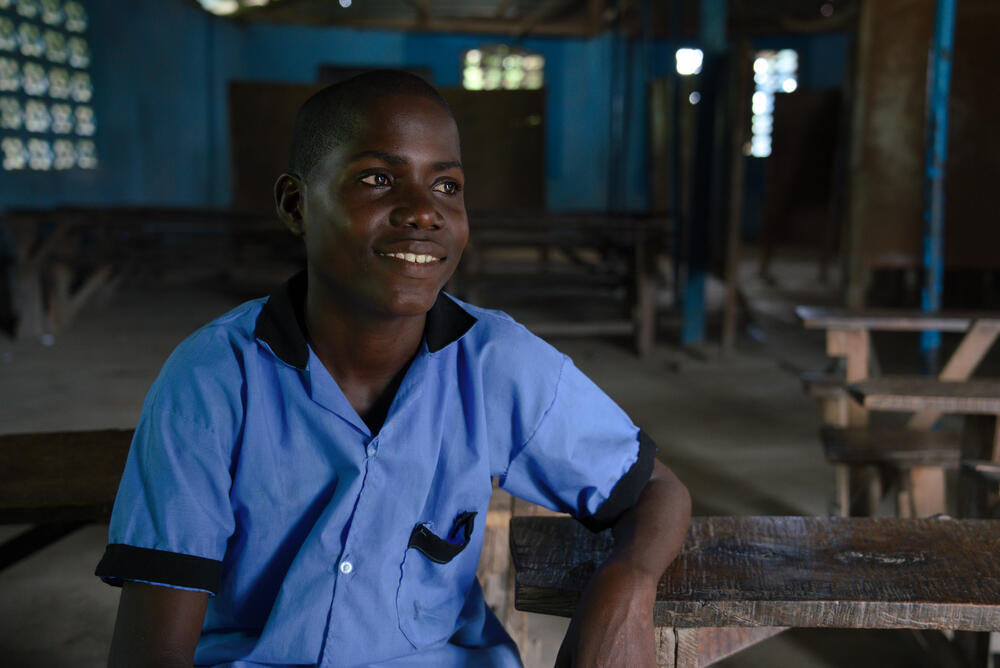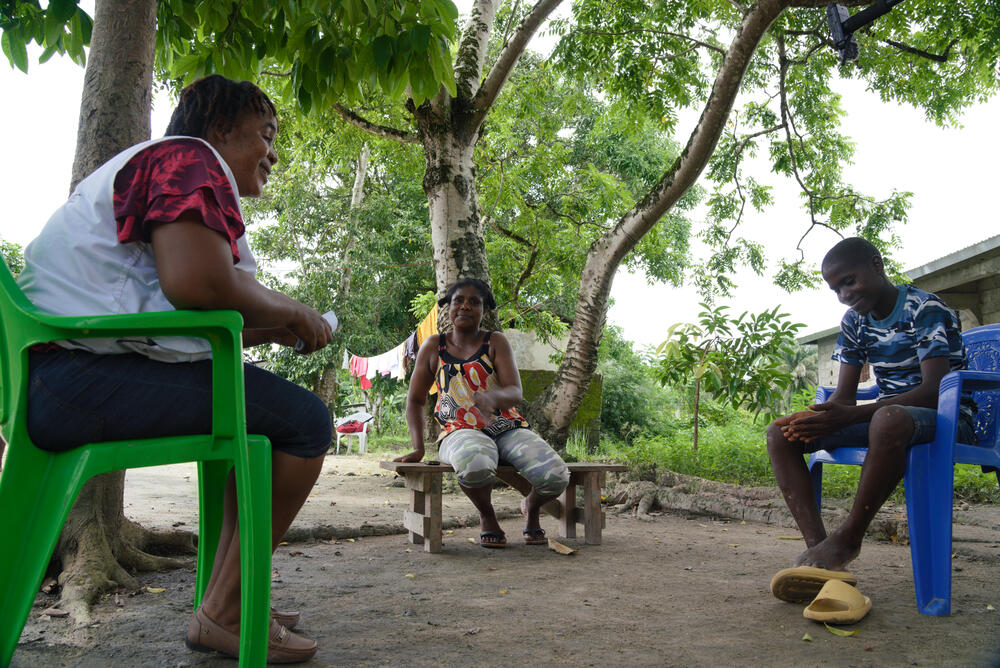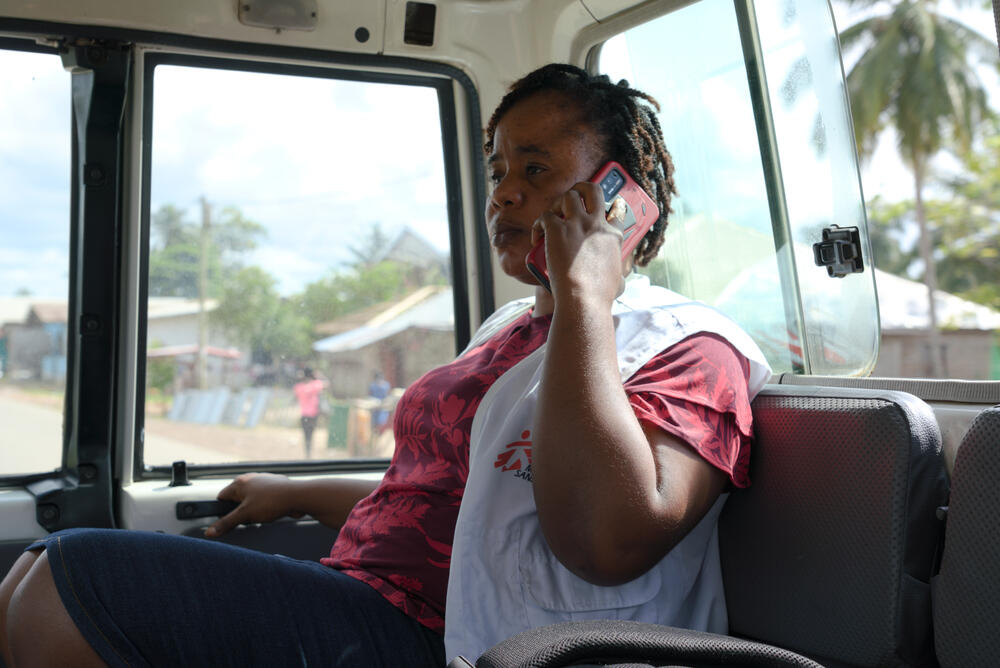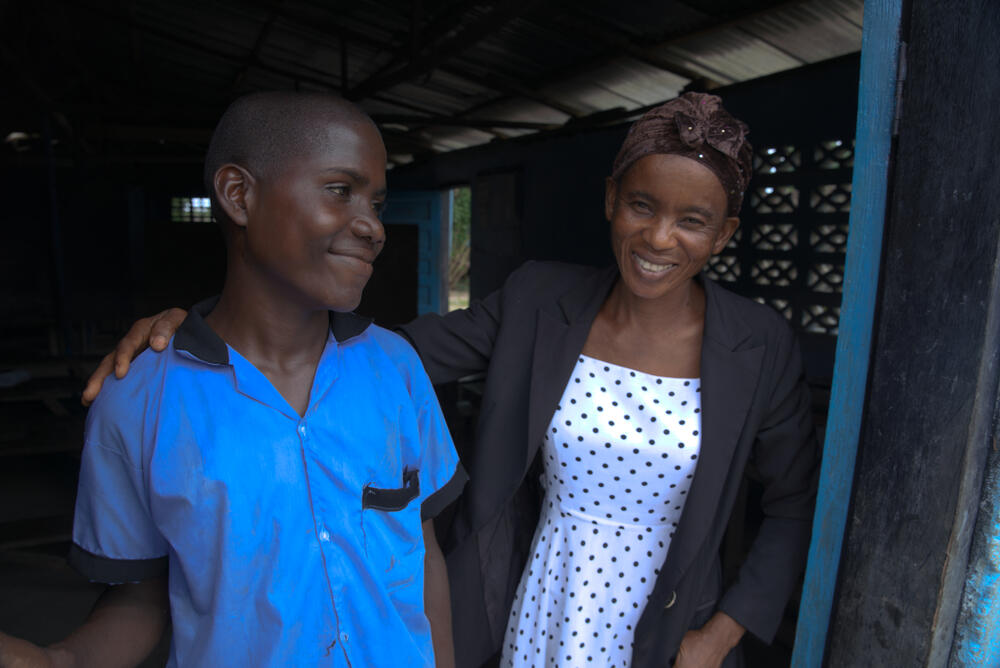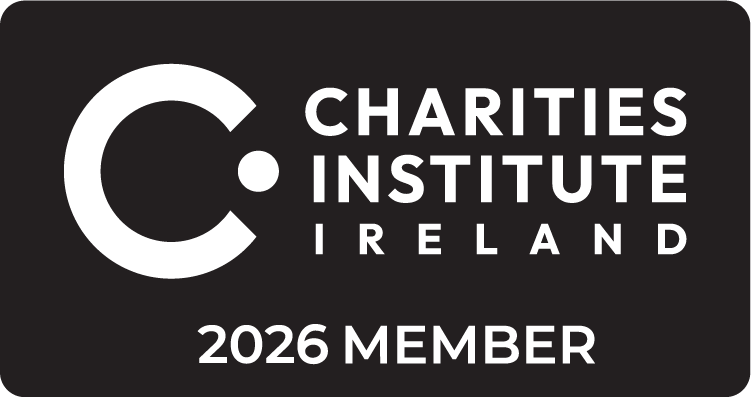Living and Learning with Epilepsy in Liberia: Peter's story
5 January 2023
When 14-year-old Peter started having epileptic seizures, a misdiagnosis only made things worse, and his mother feared he wouldn’t be able to return to school. Now on regular treatment, Peter looks forwarding to fulfilling his own dreams for the future, and his mother’s for him.
Gertrude remembers clearly how confused she was when her teenage son Peter started having epileptic seizures. Selling wares at the market, she was shocked to be rung by the school one day with the news that Peter had been taken to hospital.“Usually when he was sick he would tell me, for example, ‘Mama, I have a headache.’ But he wasn’t sick, and his skin was not hot. So, how could they be telling me Peter fell down that morning?”
For Peter, it was equally hard to make sense of. “When they finished ringing the bell, that’s when everyone was going inside, I fell down all by myself. But I didn’t know I had fallen, and then they took me to the hospital. Then I came to, and I saw an IV drip on me.”
Epilepsy is both under-recognised and under-diagnosed in Liberia, a reflection of the extremely limited treatment that has been historically made available. Seizures are usually considered the sign of a spell—a bewitching. When Peter experienced a ‘drop seizure’ the first time, he was at risk of being shunned by everyone in his school, including the teachers who could have been fearful of responding in any way at all.
Instead, in good faith, they sent Peter to hospital. And sent him again when he had another seizure the same day. His seizures and altered state of consciousness were confused with symptoms of malaria, and Peter was discharged with a treatment regime that, to his mother Gertrude’s distress, “was just like adding fire”.
“Then I came to, and I saw an IV drip on me.”
Peter, 14 years old
The third time Peter suffered a seizure he was drawing water from the well at his home. This is a risky activity for people with uncontrolled seizures, who may be unconscious when they fall and can drown even in the shallowest of pools. Though Peter survived that day, a neighbour pronounced him cursed, leaving Peter’s parents scrambling to understand exactly what was going on, and who could help them.
One option was traditional medicine, often sought out in the countryside, at considerable cost. The family baulked at first paying USD150, then another 300, to treat their son. By this stage Peter was having seizures weekly. Peter and his family felt embarrassed. Gertrude’s concern that he wouldn’t be allowed to continue at his school was exacerbated, as Peter was increasingly unable to attend due to the frequency of the seizures and the time he needed to recover from each one.
“It looked bad to me,” recalls Peter. “When I’m about to have a seizure, I don’t even know it. When I come to, my whole head hurts, and my body feels cold.”
Eventually a family friend recommended they consult the epilepsy clinic in Clara Town, one of several involved in a programme begun by Médecins Sans Frontières with the Liberian Ministry of Health in 2017 to treat epilepsy in the communities of Montserrado County.
Vivian T Sambola is a Médecins Sans Frontières psychosocial worker at Clara Town clinic. Raising awareness about epilepsy is an important part of the programme’s strategy, she explains.“We create awareness in the community because we believe if patients and caregivers are aware of what epilepsy is, and that it can be treated, they will also have faith to come and get that treatment.”
“I also provide support to the caregivers, because the stress of caring for sick people is not an easy thing,” says Sambola. “When they get to know that this is a brain sickness and this patient is not responsible for what has happened to him or her, and that the body is responding with seizures, they become more supportive. So we work with the patient, we work with the caregiver; it's holistic patient care.”
Peter was prescribed an anti-epileptic drug with careful instructions to take two tablets a day, one in the morning and one in the evening. “I had to choose the time for him to take the medicine,” explains Gertrude. “I wanted to choose six o'clock, but because he likes to go out to play, I chose seven o'clock, sharp," she says.
With his epilepsy under control, and follow-up support established with the psychosocial team, Peter was ready to return to school. For Gertrude, it meant her son would be able to have the education she never had. Even so, it was an anxious decision for both: would Peter fall down at school, would Gertrude have to rush from the market after another crisis call?
Thanks to a scholarship at Start Right International School, Peter is now on the path to finishing high school—and very happy to be playing soccer again. Reverend Mother Stella Sannoh, Start Right’s owner and principal, describes Peter as a smart boy, and a good footballer. “Whenever we want to play other schools, he will tell me, ‘Mother, I want to play. Just put my name down, I want to play.’
Like many boys his age, Peter is considering options for his future: getting scouted for a major soccer team and being able to travel would be exciting; or he could join the army. He exercises in the morning to keep himself strong, and feels satisfied being able to carry heavy sacks of rice that he goes to buy for his mother. He keeps up his study between a myriad chores: carrying water, washing the dishes, and sweeping the yard.
Gertrude says she feels happy. “I'm getting free treatment for my son, and the treatment is making him better. I want Peter to learn a trade. Any work you give him, he can do it.”
